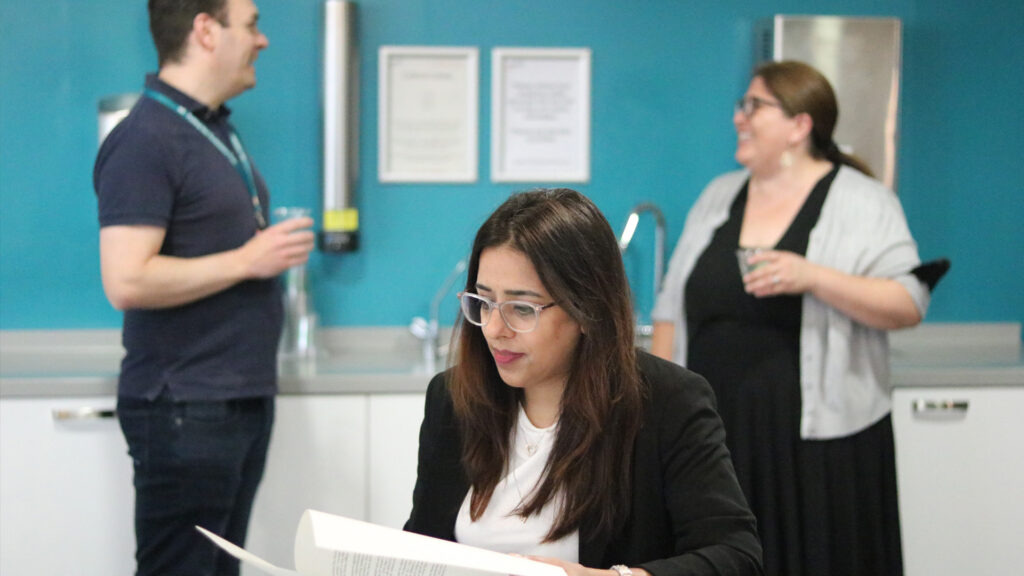The Knowledge and Information Management (KIM) profession supports and champions the creation, organisation and application of information and knowledge in the Home Office.
KIM enables all the department’s staff to find and use the knowledge and information that they need to carry out their jobs and support the Home Office’s mission. Our profession forms a cornerstone of all government activity and touches every aspect of Home Office activity. Those in KIM roles are in the privileged position of seeing and supporting the full extent of the work undertaken by the department.
People in the KIM profession are keepers of the Home Office’s records and history, ensuring the department remains transparent and accountable to both Parliament and the public.
Our role grew out of the Library and Archivist profession, but now covers many other things that are integral to our day-to-day work. In the 21st century, there are significant digital challenges in addition to the traditional paper ones that have existed since the Home Office was created in 1782.
To join the profession, you should be spending at least 50% of your time in a KIM role. But our resources are open to anyone in the department who wants to know how to manage their knowledge and information more efficiently.

What you could be doing
The KIM profession covers a wide and varied range of roles including:
- Information Architecture
- Information Management
- Information Rights
- Knowledge Management
- Records Management

The benefits of working in a KIM role at the Home Office
We’re leaders in managing change and have opportunities to develop skills that are relevant to a wide range of roles across government.
Members are offered corporate membership of professional bodies, allowing access to their resources and training materials at reduced costs. You’ll also have access to internal resources that keep you up to date with news, events and job opportunities.
Our resources and support will help Home Office KIM staff to build the knowledge, skills and behaviours needed to achieve their objectives and meet the challenges of delivering public services in the 21st century.
For more information, see the Continuing Professional Development document, which signposts the learning and development opportunities that are available across a range of Government Knowledge and Information Management roles.
There are no current vacancies for this role. View all our current roles and apply



